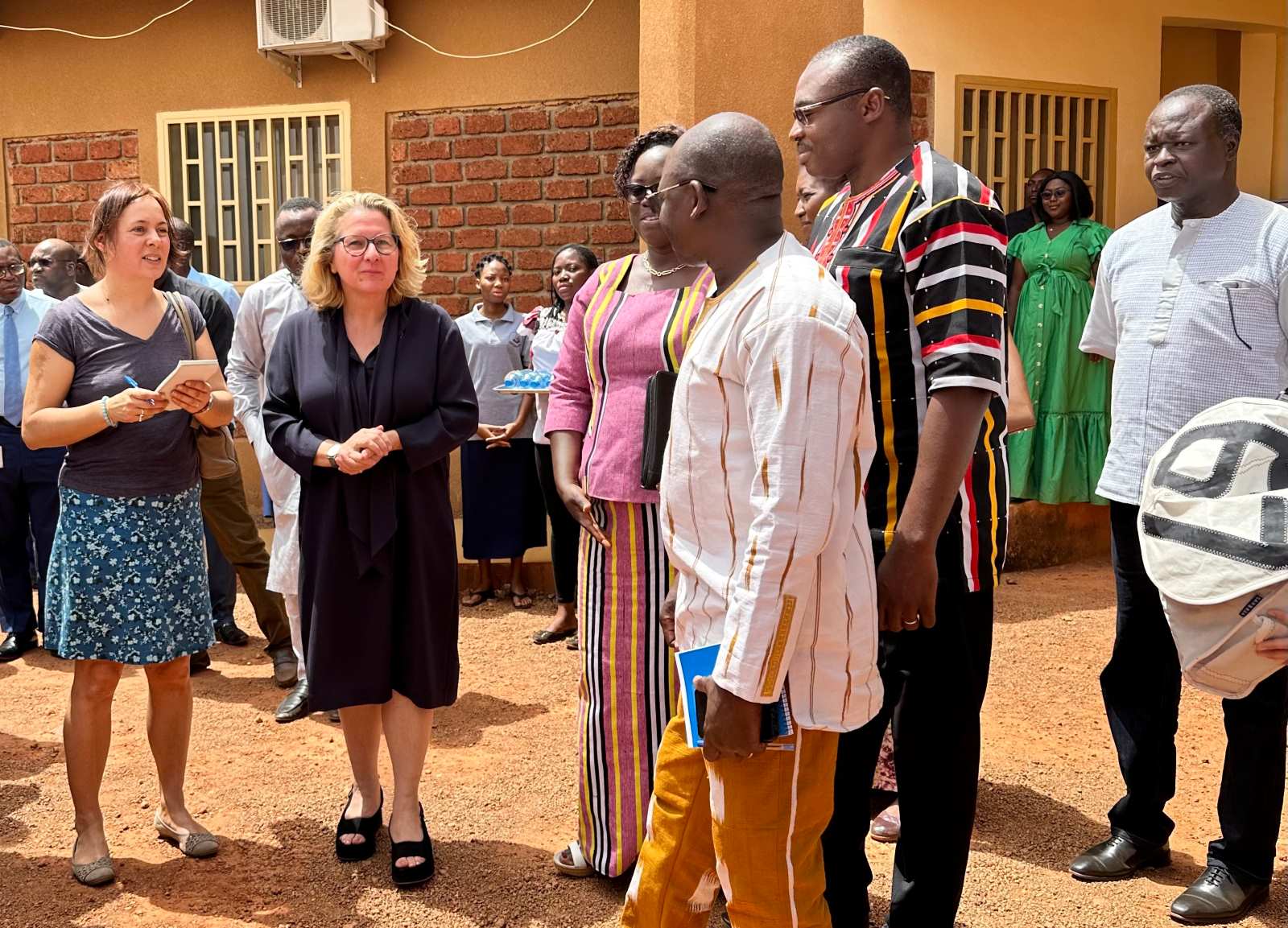Debate on German DC
Proven benefits

German development cooperation (DC) increases the exports of goods by German companies. This is the conclusion of an analysis by researchers from the University of Göttingen, which was published by KfW. On average, between 2013 and 2023, each euro spent on bilateral DC was linked to additional German exports of goods to recipient countries of 36 cents. In absolute figures, this export effect amounted to an average of $ 8.8 billion per year. The figure does not yet include cross-border services, due to a lack of available data. The authors calculated that almost 90,000 jobs in German industry are the result of foreign trade stimulated by DC.
The researchers primarily explain the effect as being due to rising incomes in the recipient countries, which leads to additional demand. However, they also refer to the goodwill and good relationships promoted by the cooperation: Nurturing international partnerships also strengthens economic interconnections.
The basis is a model developed by the Göttingen researchers, which was published in a study in 2016. The figures presented now are the result of a new analysis based on the latest data using this methodology.
Diverse benefits of development cooperation
KfW does not see development cooperation primarily as promoting trade and industry. However, in the context of the sometimes polemic discussion about the intent and purpose of DC (and the proverbial cycle paths in Peru financed by KfW), it is important to show that the effects of this commitment are multidimensional. It is not a question of switching between altruistically improving the world and selfish policies of self-interest. International cooperation, if it is correctly designed, benefits the interests of all parties.
This applies more to Germany than to almost any other country, whose economic success – as well as its safety – has long been founded on global interconnections. DC organisations should therefore emphasise that the commitment to global sustainable development and the stabilisation of prosperity and peace in Germany are two sides of the same coin. In a world where open cross-border systems are increasingly being questioned and international relations are under threat of disruption, this is becoming increasingly evident.
These arguments have been well received. Several media have reported on the new data, with a consistently positive tenor. Anyone who immersed themselves in X, YouTube or TikTok in the first months of this year – or followed some of the political debates – could easily get the impression that the majority of Germans would prefer to withdraw from DC completely. However, the loudness of individual comments does not make them representative.
Countering doubts about the benefits of development cooperation with facts
Public opinion research studies, such as the DEval Opinion Monitor, show that well over 50 % of the population are still generally in favour of state involvement in DC. At the same time, there are widespread doubts about the effectiveness and benefits of this expenditure. There is also quite a difference in the preferences for the goals that should be pursued with DC. There is no single convincing message for all target groups.
The task for DC communication is therefore to demonstrate to a broader and more critical audience that support for developing countries and emerging economies and manifest self-interest, even economic self-interest, are not contradictory, but can go hand in hand. Data and facts such as the Göttingen calculations on the export effects of German DC are a strong tool in this regard.
Nicolai Tust is Head of Communications at KfW Development Bank.
info@kfw-entwicklungsbank.de









